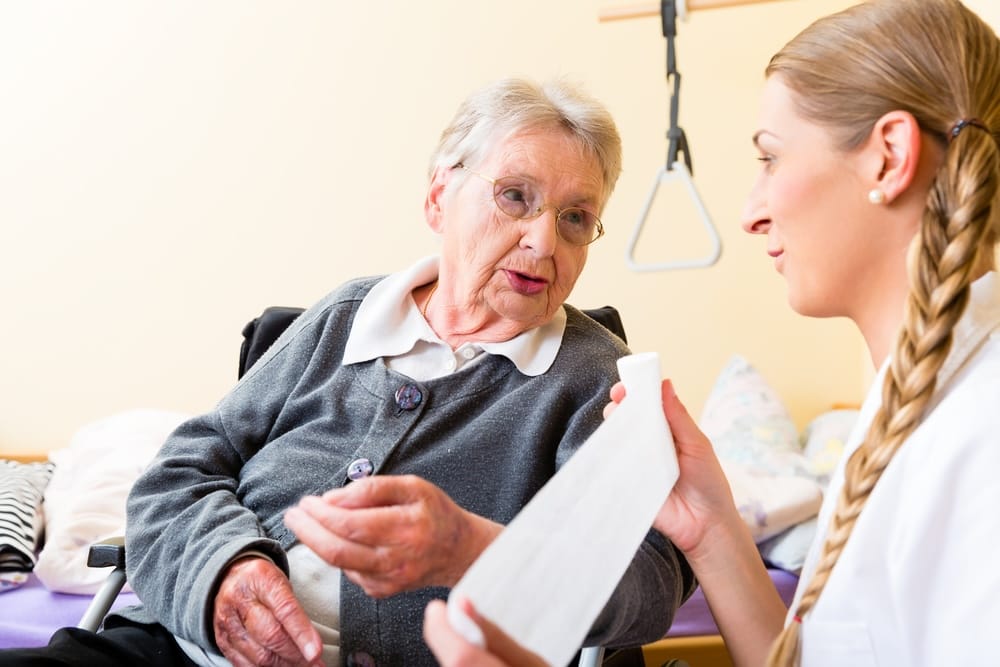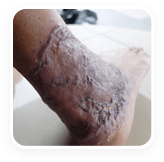
If you’re dealing with open sores that haven’t healed for weeks, getting to regular hospital or clinic appointments can be difficult. In these cases, mobile wound care specialists provide accessible support directly to you in your home or skilled nursing facility. Chronic ulcers require consistent monitoring, cleaning and treatment to prevent infections and promote healing. Here’s how mobile providers deliver this care for patients in Atlanta.
5 Ways At-Home Wound Care Supports Chronic Ulcers
From arterial and diabetic foot ulcers to bedsores and venous ulcers, these wounds have a range of underlying causes and require different care approaches. While treatment plans will vary, mobile wound care services typically include the following steps.
1. Assessing the Wound and Its Causes
Initially, a mobile wound care professional will need to examine the ulcer to check the size, location and tissue condition. An inspection will also identify the type of wound, such as an arterial, sacral or venous ulcer. During an examination, a professional wound care specialist will look for warning signs like redness or swelling.
2. Cleaning and Preparing the Ulcer for Healing
During a mobile visit, professionals will clean the wound to remove debris and limit bacterial growth. If there are signs of dead or damaged tissue around the ulcer, surgical or ultrasonic debridement may be appropriate. Removing dead tissue and debris is a vital step for helping the wound heal and preparing the ulcer for dressings.
3. Stopping Infection Before It Spreads
Infected ulcers can cause significant delays to the healing process, and may potentially lead to severe complications. However, with regular mobile wound care visits, professionals can identify signs of infection in their earliest stages. Common signs of wound infections that healthcare providers check for include redness, swelling, odor or increased pain. Professionals can also educate patients on these signs, along with advice on safe dressings and protection for the wound.
4. Tailoring Treatment to the Ulcer Type
Mobile wound care teams will develop a treatment plan based on what each ulcer requires. For instance, factors like moisture levels, drainage and infection risk will influence the type of dressing used, whether that’s foam, hydrocolloid, alginate or silver-infused options. For venous ulcers, patients could benefit from compression therapy, while diabetic foot and pressure ulcers may require padding to take pressure off the wound.
5. Tracking Progress and Adjusting Care
Regular mobile wound care and ulcer treatment visits allow professionals to check wound progress, take new measurements, and monitor tissue health. If healing slows or dead tissue develops, they can adapt the treatment plan by changing dressing types or performing debridement. Mobile wound care teams increasingly combine telehealth and in-person visits to offer convenience for patients.
Atlanta’s Best At-Home Wound Care for Chronic Ulcers
For expert mobile wound care at your home or health care facility, contact the specialists at Preferred Healthcare. We bring dependable treatment for chronic ulcers directly to your Atlanta location. Call (404) 919-5708 or schedule an appointment today.








